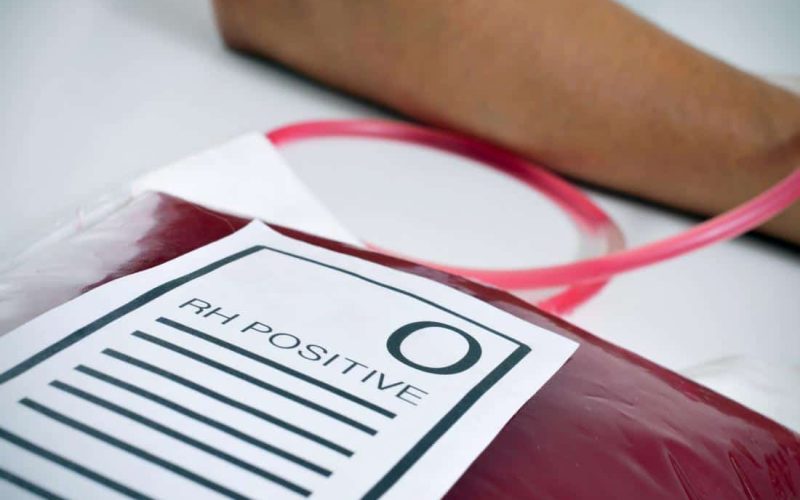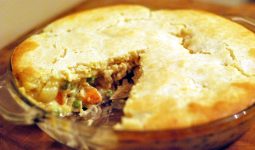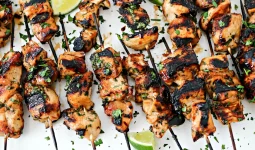Do you have the O blood type? there is a special diet plan for you. Knowing what your blood type is can usually come off as unnecessary until there is a need for a blood transfusion.
All of that is about to change as there is currently an argument that suggests feeding according to your blood type can offer some health benefits. Whether you have the A, B, AB, or O blood type, there are special DOs and DON’Ts for how you feed
The feeding plan according to blood types was popularized by naturopath Peter J. D’Adamo. With the aim of this blood type based diets being to achieve overall good health and also lower a person’s risk of developing some particular diseases, people may just buy into the idea.
Despite the recent popularity that the blood-type diet has gained, there is still no rigorous scientific research on the subject to prove the validity of its claims. D’Adamo himself stated this fact.
However, a singular exception was a study published in the year 2014 in PLoS One, which reached a conclusion that: “the findings do not support the blood-type diet hypothesis.”
In addition to the aforementioned, the American Journal of Clinical Nutrition conducted a review of data that is related to the diet based on blood type and stated that: “No evidence currently exists to validate the purported health benefits of the O blood type diets.”
Even though scientific evidence is in short availability, in this article, we will be discussing why some individuals believe that a person’s blood type may have an influence on their diet, and the benefit that is proposed to be derived from eating for the O blood groups.
Quick facts about the diet for O positive and O negative blood types
Studies have revealed that some blood types stand a higher risk of contracting or developing specific kinds of diseases or conditions.
Individuals with the type O blood have been shown to possess a higher level of stomach acid than people who have other blood types, and this makes it easier for them to digest proteins and fats than for other blood groups.
O blood is the most unique blood type simply because it has both A and B antibodies in its plasma, but these are not on the cells themselves, which means that it will not attack either A or B blood types the way it will react to foreign invaders.
Most meats and animal products, like eggs, fish, and poultry, make it to the top of the prescribed food list for the diet of people with type O blood. This is because they are easily metabolized by this blood group.
What is the O blood type?
Blood isn’t just as we see it. It is made up of many important components, such as platelets, plasma, red and white blood cells.
In addition to the above, blood also contains antigens. These substances are what triggers a person’s immune system to launch an attack on foreign invaders like germs and bacteria. Antigens are also known to attack “foreign” blood types that possess different antigens.
You may already know that blood types are classified into A, B, AB, and O. They are further grouped according to the presence or absence of a particular antigen known as Rh factor. This Rh factor is what makes the blood groups either Rh-positive or Rh-negative.
For instance, an O+ blood type does not possess A or B antibodies on its cell surface, however, it shows positive for the presence of the Rh factor.
On the flip side, O – blood neither has an A or B antibodies nor the Rh factor. This is the specific reason why type O- blood is considered as a universal red cell donor type.
Eating for your specific blood type
We have mentioned earlier in this article that different blood types may cause people to become either more or less susceptible to specific conditions.
Some research has also suggested that some blood types have been connected to an increase in the risk of heart attacks, pancreatic cancer and blood clots.
Take, for instance, some research has pointed out that people with O type blood are at a lower risk of getting a coronary heart disease but at an even higher risk of suffering from a peptic ulcer.
According to D’Adamo, there occurs a chemical reaction whenever the blood comes in contact with some specific foods, specifically with a protein called lectin.
Lectins, which is a protein that is found in food, has a direct effect on both the digestive tract and blood. This protein binds to cells within a person’s body, causing the cells to clump together and potentially lead to hormonal disruptions. This effect of lectins on the body is comparable to the presence of a foreign substance.
D’Adamo has suggested that individuals with varying blood types have varying reactions to different kinds of food and their lectins. Because of this, he has recommended unique and particular diets for individuals with these varying blood types.
Some studies have shown that many lectins may react with all types of blood, nevertheless, not specific ones.
Foods for Our blood type to eat
Per the recommendation of the Blood Type Diet for the best of dietary health that is based on blood type, certain foods should either be eaten or avoided in the type O blood group.
The foods below are those that are recommended for people who want to engage in the O type blood diet. It is also worth noting that there is almost no reliable evidence that supports the validity or use of this type Of blood diet.
Animal proteins
The diet blood type diet recommends that individuals with O blood types should eat “beneficial” meat and animal products, such as:
- Lamb
- Beef
- Mutton
- Cod
- Venison
- Veal
- Mackerel
- Herring
Individuals who have the type O blood and are following the O blood type diet for their blood type are allowed to eat most animal products, and that includes cold-water fish.
There are exceptions, and they can be found further down in this article.
Dairy
Even though eggs and dairy should be avoided on this diet, people who follow this feeding plan can occasionally eat products such as;
- Farmer cheese
- Feta cheese
- Mozzarella cheese
- Goat cheese
- Butter
- Soy milk
- Nuts
Nuts are a wonderful source of healthy fats and protein, and individuals who are following the O blood type diet can typically feed on most of the edible nuts, sides the ones that are listed on the “avoid” part of this article.
If you want to get suitable nuts and seeds, they are available in your local market or supermarket. You can also purchase online, as there are walnuts, almonds and hazelnuts available.
Of all the seeds and nuts, walnuts and pumpkin seeds are assumed to be the most beneficial for people with the O blood type.
Beans
Beans are another source of protein, and most beans are assumed to be highly tolerated by individuals with the type O blood, and the most beneficial ones are:
- Azuki beans
- Aduke beans
- Black-eyed peas
- Pinto beans
Grains
Unlike the A blood type that works great with grains and vegetables, the Other blood type isn’t exactly a grain-friendly one. Most grains must be avoided, but there are a few options that are well tolerated, such as:
- Barley
- Amaranth
- Kamut
- Rice
- Buckwheat
- Millet
- Kasha
- Spelt
- Rye
- Ezekiel bread
- Essene
You can find many of the more obscure grains for purchase online if you don’t have them in your local market. These grains include amaranth, kasha, and Kamut, as well as Ezekiel bread.
Vegetables
The unique thing about vegetable is how some of these manage to be well tolerating almost every blood type. Except for a few vegetables that should be avoided by people with the O blood type, many others are believed to be well-tolerated.
Below are some of the vegetables that are recommended for the O blood type diet;
- Artichoke
- Tomatoes
- Horseradish
- Dandelion
- Chicory
- Garlic
- Parsley
- Kale
- Red peppers
- Onions
- Okra
- Parsnips
- Pumpkin
- Sweet potatoes
- Turnips
- Seaweed
Fruits
Just as we mentioned with vegetables, almost every fruit is believed to be tolerated by people with the O blood type. Below are some of the recommended fruits for individuals with type O blood;
- Prunes
- Plums
- Most berries
- Grapefruit
- Figs
Spices and condiments
The spices that individuals who choose to follow the blood type diet can enjoy include:
- Iodized salt
- Kelp-based seasoning
- Parsley
- Cocoa
- Cayenne pepper
- Curry
- Chocolate
- Honey
It should be easy to get these ingredients from your local market, but for people who would rather purchase online, ingredients including kelp-based seasoning and iodized salt are available.
Beverages
There are drinks that people following the O blood type diet can enjoy, and they include:
- Club soda
- Seltzer water
- Wine
- Tea
Foods to avoid
Just like we did the article for type A blood diet, we will be discussing the foods that should be avoided by people who choose to be on the type Of blood diet.
Supporters of this diet are of the opinion that people who are of the type O blood may experience some unwanted weight gain if they feed on certain food groups, including gluten-containing wheat products and dairy.
There are claims that these kinds of foods may result in an autoimmune or inflammatory response.
Animal proteins
While animal products are well tolerated, the diet recommends that individuals with the type O blood must stay away from:
- Goose
- Pork, including ham and bacon
- Catfish
- Pickled herring
- Barracuda
- Caviar
- Smoked salmon
- Conch
- Octopus
Dairy
People who choose to follow the diet must endeavour to avoid most dairy products, especially the ones that are not mentioned in the “allowed” list for dairy above.
- Yoghurt must be avoided
Nuts
Nuts may be an awesome source of protein, but certain nuts must be avoided by those who chose to follow the diet. The nuts that are not allowed includes:
- Cashews
- Brazil nuts
- Peanuts
- Poppy seeds
- Pistachios
Beans
Some particular kinds of beans must be avoided by individuals who chose to follow the O blood type diet, they include;
- Beans, such as kidney, copper, and tamarind beans
- Lentils, such as green, domestic, and red
Grains
Grain that the blood group diet for people with type O blood is advised to avoid includes the following;
- Gluten
- Corn
- Graham
- Durum
- Bulgur, sprouted, whole and white wheat, bran and wheat germ.
oat - Farina
- Seven-grains
Vegetables
Even though like with other blood types, vegetables are well-tolerated with the O blood type, it is highly recommended that Individuals who choose to follow this diet must avoid the following;
- Alfalfa sprouts
vegetables that are members of the Brassica family, which includes cauliflower, cabbage, mustard greens and Brussels sprouts.
- Fermented olives
- Shiitake mushrooms
Vegetables that are members of the nightshade family, including potatoes and eggplant
- Corn
- Leek
- Avocado
Fruits
Just as we have seen with vegetables, though fruits are great, the diet recommends that people with the O blood type avoid a number of particular fruits;
- Cantaloupe
- Melons
- Honeydew
- Tangerines
- Oranges
- Blackberries
- Strawberries
- Rhubarb
- Coconut and all products that may contain coconut or it’s extracts
Spices and condiments to avoid
The spices and condiments that should be avoided by people who are on the Other blood type diet include;
- White pepper
- Black pepper
- Capers
- Vinegar
- Cinnamon
- Corn syrup
- Cornstarch
- Vanilla
- Nutmeg
- Pickles
- Ketchup
- Relish
- Mayonnaise
Beverages
Drinks that are recommended to be avoided by people on this diet includes:
- Coffee
- Beer
- Black tea
- Distilled liquor
The bottom line
As we have earlier stated, as of now, there is no strong study result to prove that the blood type diet is effective, neither is there any to support its use or effectiveness.
While there is a chance that people who decide to follow a specific blood type diet will report improved health, it wouldn’t necessarily be linked to their blood type, but it could be due to eating more healthy foods in general.
It is vital that everyone pays close attention to their bodies and how it reacts to their lifestyle, and also get to know which foods do not work, and which food is perfect for them. It is best to keep a well-balanced diet that is full of nutrient and also eat a variety of healthy foods.
Remember that just as with any exercise or diet program, it is vital that you speak with a doctor or medical practitioner before you embark on any particular diet for blood type.
Let us know what you think, please leave a comment below.






